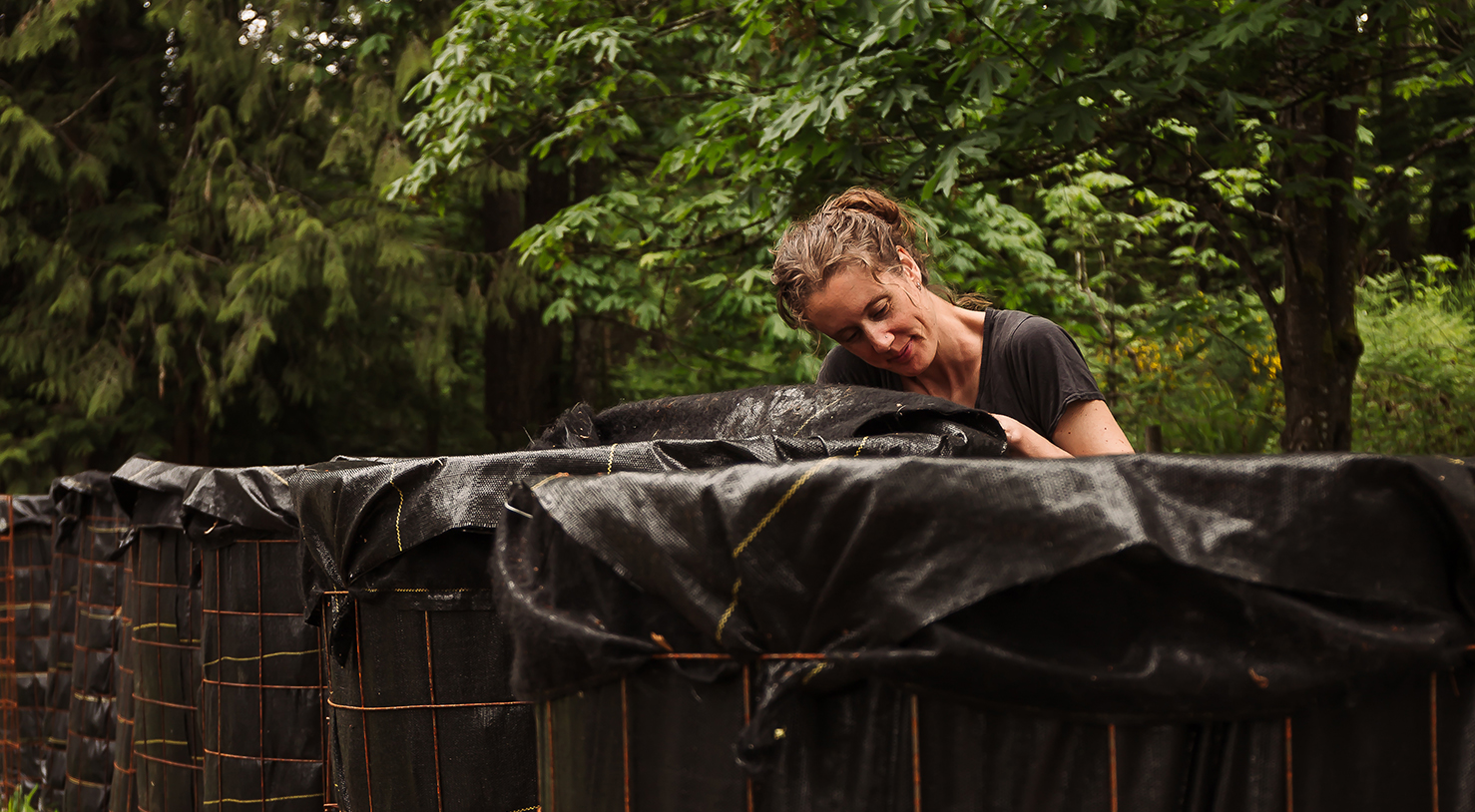Bioreactor Buzz
With things shifting economically these days, it seems like a good time to focus on what can be done to increase local resilience – especially in the realm of food security. We are so lucky to live in a region that still has plenty of rainfall (if only we did a better job of storing it) and a long(ish) growing season. We also still have pockets of thriving indigenous microorganisms that we can invite into our compost piles to restore life to our tired soils. I find it so reassuring to think that everything we need to grow healthy and abundant food is right at our fingertips – it doesn’t require getting anything over the border or boosting the pockets of corporations.
Most of our soils are lacking in fungi. By taking a few handfuls of Johnson-Su bioreactor compost and making it into an extract for watering around plants, or using a very small amount to coat seeds prior to planting, we can re-inoculate fungi and other important signaling organisms. Dr David Johnson and his wife Hui-Chun Su developed this composting system. Built on a pallet and contained within heavy duty landscape fabric, the pile utilizes wood/yard wastes and manure. Everything is chopped, wet down and built on the same day, with initial chimney pipes to maintain airflow. Once things cool down, compost worms are added, and the whole thing is kept moist enough for these hard little workers to stay. A clay-like consistency of fungally-dominant microbial goodness appears 9-12 months later. A little goes a long, long way. You can access small amounts on Cowichan’s on-line farmer’s market, www.cow-op.ca, this spring. Even if you aren’t in need of local microbes, Cow-Op is a fabulous way to connect with local food and local growers.
Recently, as I was jumping over swales of slowly infiltrating water, carrying buckets of Johnson-Su compost and woodchips to inoculate more fungi around my fruit trees, I felt a contentment and connection that was difficult to describe. Despite all that is going on, I hope that you are able to find some connection too, whether that be in strengthening resilience through building community relationships, or in connecting back to the soil.
